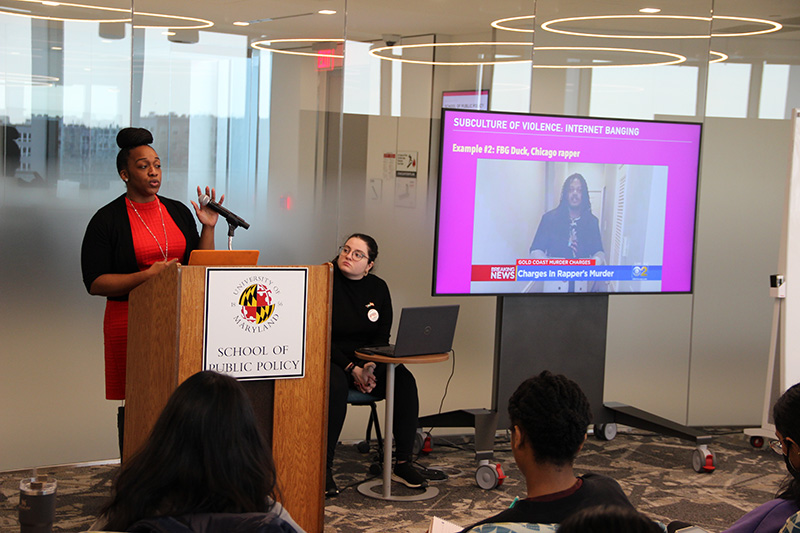Experts with the Regional Gun Violence Research Consortium (RGVRC) address different facets of firearm violence from a variety of perspectives and disciplines. In this new series, get to know our experts and learn more about their contributions to better understand, prevent, and respond to the public health crisis of firearm violence. In this first installment, meet Brooklynn Hitchens, an affiliate scholar with the RGVRC and an assistant professor in the Department of Criminology and Criminal Justice at the University of Maryland.
Why do you study gun violence? Why is this an important area of research and how do you see your work helping to address this issue?
I see the epidemic of gun violence as one of the defining inequities of the 21st century. When you consider who is most at risk of dying by gun homicide—low-income Black Americans in the streets—the urgency of the work comes in full focus. Gun violence is a public health crisis that has collateral consequences beyond the direct victims. Such violence bleeds into family lineages, decimating entire communities. It alters perceptions of safety, upward mobility, and overall quality of life. My work highlights and problematizes our understandings of gun violence in urban spaces and provides a critical reframing of the causes and consequences of the violence.
What is your research focus related to gun violence? What are you currently researching?
My research critically investigates how street-identified and justice-involved Black populations navigate 1) participation in crime, 2) risks for victimization, and 3) involvement with police. More recently, I explore how experiences of gun victimization and violent loss affect individuals’ cultural behaviors, attitudes, and worldviews. This includes their grief and mourning practices as sites of resilience and survival in adverse conditions. I am particularly interested in the experiences of street-identified Black women and girls who are often left behind in our discussions on gun violence. But these women are intricately tied to both the escalation and de-escalation of the violence.
Methodologically, my work uses street participatory action research (Street PAR) methods to partner with low-income Black communities to reduce racial inequities in exposure to violence. My methodological expertise is qualitative, through the use of ethnography, interviews, and focus groups—and I also utilize quantitative and mixed methods.
What do you hope that people can take away from the research you are conducting?
I hope that ultimately—whether you are a researcher, practitioner, or everyday resident—you can better understand how structurally violent conditions create and ensure the prevalence of gun violence in low-income Black communities.
Learn more about Brooklynn and her work for the Regional Gun Violence Research Consortium below.

